DVD/Blu-ray: Zama
Argentinian auteur Lucrecia Martel mesmerises with depiction of the chaos of colonialism
Atmosphere definitely dominates over narrative in Lucrecia Martel’s fourth film – long delayed, Zama follows almost a decade on from her similarly opaque The Headless Woman – but the Argentinian director offers bracing consolation for some early longeurs in her depiction of a downtrodden functionary hero who is existentially trapped in a crazed colonial world.
Played by Mexican actor Daniel Giménez Cacho, Don Diego de Zama has been festering for years as a magistrate in a riverside hell-hole that must be one of the Spanish Empire’s most far-flung possessions (apparently Paraguay, though geographical location is as loosely defined here as is the 18th century historical setting). If his tricorn hat and crimson jacket must have initially suggested an element of louche elegance, the rot obviously takes its toll on those who remain too long in these parts. It’s manifested in a distracted lethargy, with energy expended between apparently meaningless bureaucratic tasks and desultory engagement within this enclosed would-be garrison of civilisation.
The chaos of 'Zama' seems to be everywhere, and outside time
Beyond it lies the world of the natives, who are presented more as clusters that respond with servile obedience to any random demand than as individuals, and the diversion of a liaison with a local woman has given Zama a mestizo child. But any attachment there is as empty as the lackadaisical (and bruisingly futile) flirtation he carries on with the wife of a senior official. “Europe is best remembered by those who were never there,” she advises, perceptively highlighting the vacuity of society’s rituals copied in a location in which they can only ever be irremediably alien.
Zama’s every petition for relocation – at some stage in the past he has even acquired a wife and children in Buenos Aires, but their existence is vrtually fabular – is met by absurdist rebuttals that evince the particularly Kafkaesque bureaucracy that rules this remote corner of empire. The casual dismissal with which his requests are treated is nothing, however, to the casual brutality that pervades the whole colonial enterprise, in which human ears, supposedly cut from the corpse of a local bandit, are treated as a gambling token. 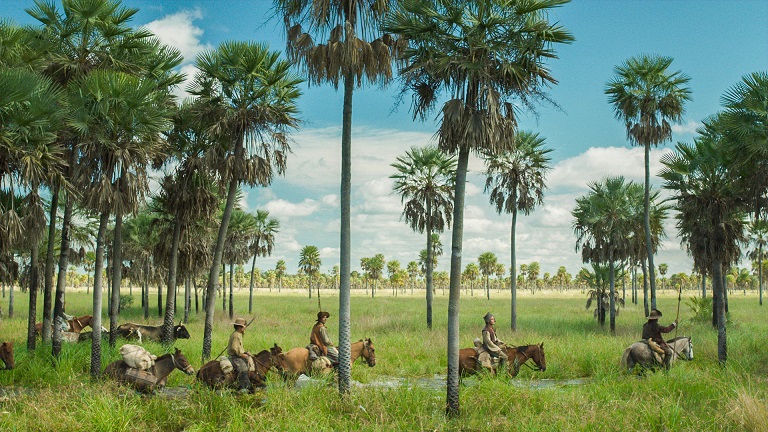 An adaptation of the 1956 novel by Antonio di Benedetto, the film’s sense of absurdist confinement in a meaningless world surely recalls the work of the Argentinian writer's contemporary Samuel Beckett, as well as his literary master, Dostovesky. The existential gesture of escape that Zama takes in the film’s final reel changes the visual tone of Martel’s world almost beyond recognition. From the dusty, claustrophobic brown hues that define the settlement, his bedraggled group of adventurers sets out on a sort of Heart of Darkness journey into a luscious wilderness, the deceptive beauties of which disguise dangers lurking both without and within.
An adaptation of the 1956 novel by Antonio di Benedetto, the film’s sense of absurdist confinement in a meaningless world surely recalls the work of the Argentinian writer's contemporary Samuel Beckett, as well as his literary master, Dostovesky. The existential gesture of escape that Zama takes in the film’s final reel changes the visual tone of Martel’s world almost beyond recognition. From the dusty, claustrophobic brown hues that define the settlement, his bedraggled group of adventurers sets out on a sort of Heart of Darkness journey into a luscious wilderness, the deceptive beauties of which disguise dangers lurking both without and within.
Portuguese cinematographer Rui Pocas captures those closing landscapes as almost hallucinogenic in their wide vistas: they seem to shatter any colonial illusion that the European interloper can ever find a place here. Martel is a director for whom sound has always been as important as image – if not more so – and both dominate here over text. Her sound designer Guido Berenblum melds the insistent sounds of nature into an aural fabric of dislocation, made all the more abtruse and disorientating by snatches of human speech that seem to hang in the air, neither dialogue nor voice-over in any traditional form. It’s a crazed sensual tapestry that is completed by easy contemporary guitar duo melodies (from Los Indios Tabajaras) that only emphasise their beguiling anomaly. Martel may compel us to accompany her legion of the lost on their particular 18th century journey, but the chaos of Zama seems to be everywhere, and outside time. Oneirically intense, it’s auteur filmmaking at its most ambitious.
Overleaf: watch the preview for Zama

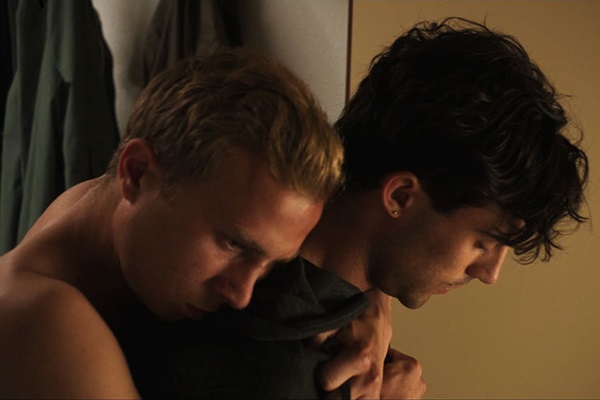 What Gisler certainly captures is the hypocrisy behind the system itself. It takes Mario’s otherwise lugubrious coach to point out that club management not only has to be seen to be treating the issue with appropriate sensitivity, but that the “market value” of a player who’s been outed falls dramatically. In one of the extras here, “Breaking Taboos”, the director recalls how the president, now openly gay, of Hamburg St Pauli (the club features in the film, and like YB Bern clearly wasn't afraid of the association), used exactly that phrase to him.
What Gisler certainly captures is the hypocrisy behind the system itself. It takes Mario’s otherwise lugubrious coach to point out that club management not only has to be seen to be treating the issue with appropriate sensitivity, but that the “market value” of a player who’s been outed falls dramatically. In one of the extras here, “Breaking Taboos”, the director recalls how the president, now openly gay, of Hamburg St Pauli (the club features in the film, and like YB Bern clearly wasn't afraid of the association), used exactly that phrase to him.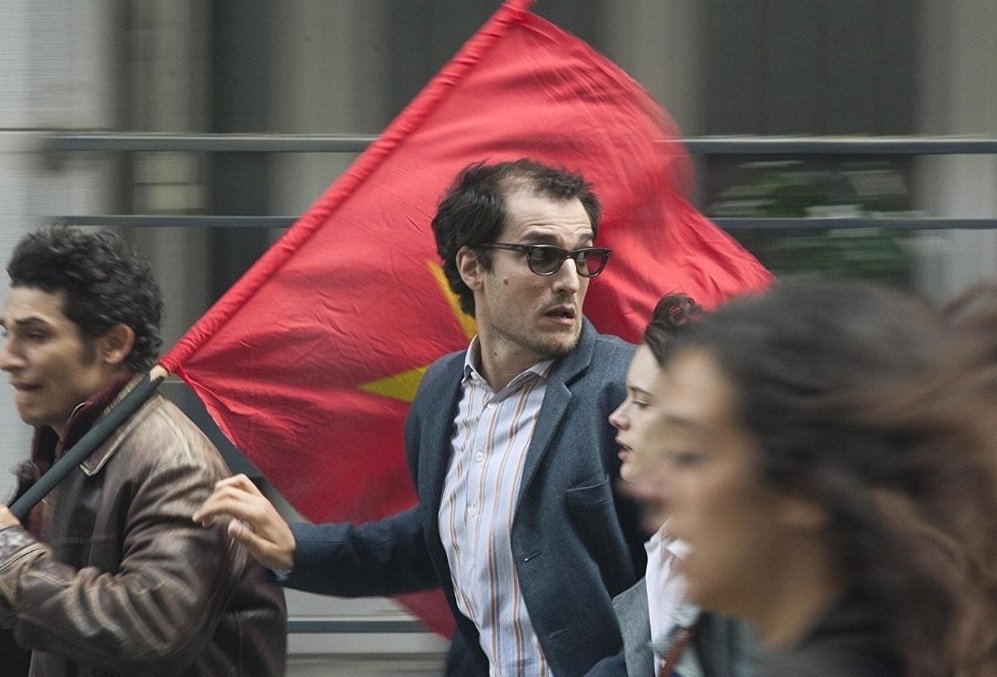 These are big set pieces that are beautifully recreated here. Godard's presence at the street protests is ironically marked by the recurring joke of how he breaks his glasses over and over again in the demonstrations (a nice late line in Stacy Martin’s voice-over suggests that it was the rising optician costs that finally stopped him joining them). More significantly, he was rejected by the student protestors, not least for arguing, in relation to Palestine, that the “Jews are the new Nazis” (plus ça change...). Intent on changing his creative direction, Godard was flummoxed by people coming up to him to ask why he wasn’t making movies like Breathless anymore (even a policeman, after a fracas, confesses how much he loved Contempt).
These are big set pieces that are beautifully recreated here. Godard's presence at the street protests is ironically marked by the recurring joke of how he breaks his glasses over and over again in the demonstrations (a nice late line in Stacy Martin’s voice-over suggests that it was the rising optician costs that finally stopped him joining them). More significantly, he was rejected by the student protestors, not least for arguing, in relation to Palestine, that the “Jews are the new Nazis” (plus ça change...). Intent on changing his creative direction, Godard was flummoxed by people coming up to him to ask why he wasn’t making movies like Breathless anymore (even a policeman, after a fracas, confesses how much he loved Contempt).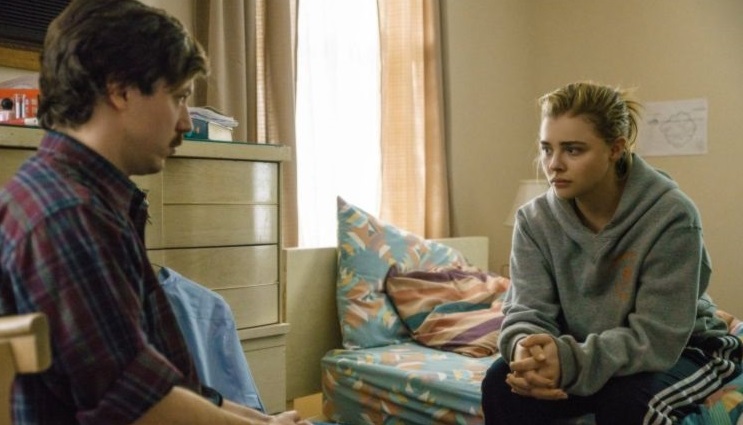 It’s an adaption of Emily Danforth’s 2012 coming-of-age novel that told the story of a 12-year-girl who, after the death of her parents in an accident, is adopted into the evangelical Christian family of her aunt. The film has taken the final third or so of the book, from Cameron’s developing relationship with schoolmate Coley – their passionate embraces are interspersed with watching films like Priscilla, Queen of the Desert – through to their being discovered, by an accompanying “boyfriend” date, making out in the back of a car during the school Prom.
It’s an adaption of Emily Danforth’s 2012 coming-of-age novel that told the story of a 12-year-girl who, after the death of her parents in an accident, is adopted into the evangelical Christian family of her aunt. The film has taken the final third or so of the book, from Cameron’s developing relationship with schoolmate Coley – their passionate embraces are interspersed with watching films like Priscilla, Queen of the Desert – through to their being discovered, by an accompanying “boyfriend” date, making out in the back of a car during the school Prom.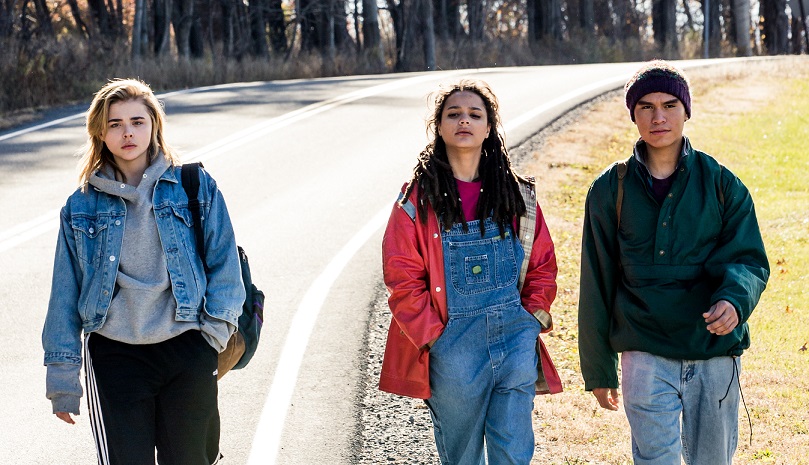 They’re all too aware that release back into the wider world will depend on the appearance of change rather than anything else. But their readiness to bide time in so laid-back a fashion doesn’t extend to all, however, as one searing late scene – with a stand-out role from Owen Campbell – reveals.
They’re all too aware that release back into the wider world will depend on the appearance of change rather than anything else. But their readiness to bide time in so laid-back a fashion doesn’t extend to all, however, as one searing late scene – with a stand-out role from Owen Campbell – reveals. It’s an experience from which you may well want to flinch, but its cumulative power makes A Gentle Creature Loznitsa’s most substantial achievement to date, certainly in the scale of his vision. Whether the accompanying reduction in subtlety counts as a loss too far is another matter, as is whether this is a sheer too-wilful darkness (that distinctive Russian concept of chernukha) rather than anything more considered. More perversely, does the film’s total absorption in its strongly defined stylistics, its “performance” manner, even somehow qualify any immediate “message”?
It’s an experience from which you may well want to flinch, but its cumulative power makes A Gentle Creature Loznitsa’s most substantial achievement to date, certainly in the scale of his vision. Whether the accompanying reduction in subtlety counts as a loss too far is another matter, as is whether this is a sheer too-wilful darkness (that distinctive Russian concept of chernukha) rather than anything more considered. More perversely, does the film’s total absorption in its strongly defined stylistics, its “performance” manner, even somehow qualify any immediate “message”?